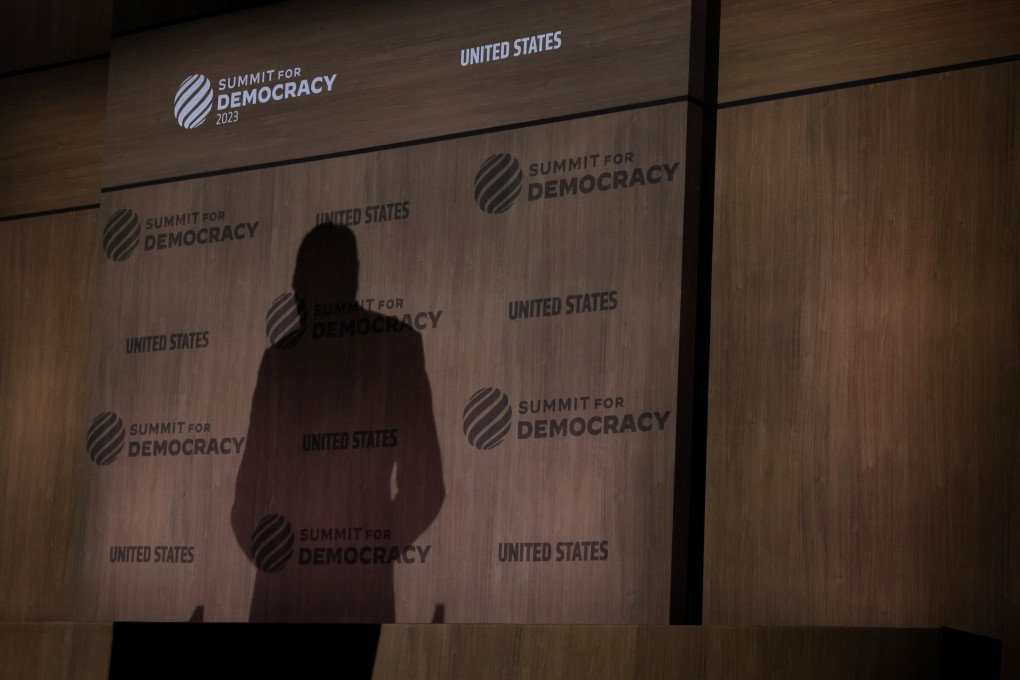My Take | Why the US ideological struggle against China must not succeed
- None of the narratives put forward hold water, because at the bottom, it is a naked struggle between two of the biggest world powers

The democracy summit held by Washington late last month came and went, with hardly anyone taking notice. Meanwhile, following in the footsteps of German Chancellor Olaf Scholz, Emmanuel Macron made his own pilgrimage to Beijing and came away with a friendly declaration of closer business ties and political cooperation. It’s hard not to conclude the French president was more interested in the new business contracts than leaning on Xi Jinping to get Russia out of Ukraine.
So much for the unity of the West!
Washington’s evolving China policy has become increasingly clear: to contain, and if necessary, fight China in a full-spectrum cold (or hot) war, across the globe. The material resources and diplomatic capital required must necessarily call on contributions from all friendly governments, not just allied democracies.
And that’s the basic self-contradictory problem of the democracy vs autocracy fairy tale. Commenting on the summit, Council on Foreign Relations president Richard Haass wrote: “Beyond the awkward ‘whom to invite’ issue, American democracy is hardly a model for others. Plus we need non-democracies to help us in the world, from sanctioning Russia to slowing climate change.”
Joe Biden ended up inviting some notionally democratic leaders who are more autocratic than many non-democrats while ignoring and offending other non-democratic leaders whose help the US will need sooner or later.
But that’s the problem: America’s evangelical appeal to democracy. Old habits die hard especially when they have worked for more than a century, if not longer. Despite a few bouts of isolationism since the late 19th century, US foreign policy has always been supremacist and interventionist. Yet, the naked expansionism has always been covered up by the prevailing moralistic or religious trends, whether it was civilising natives or making the world safe for democracy.
